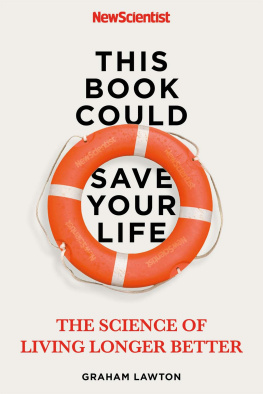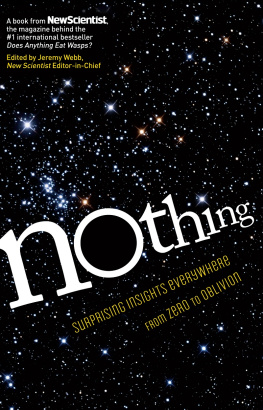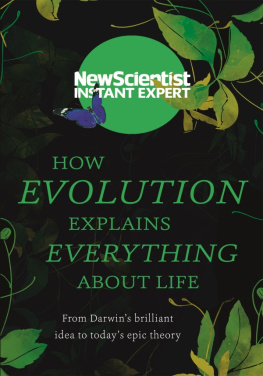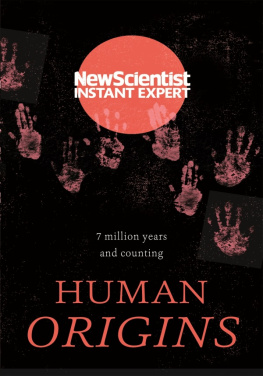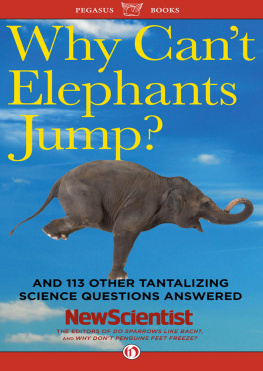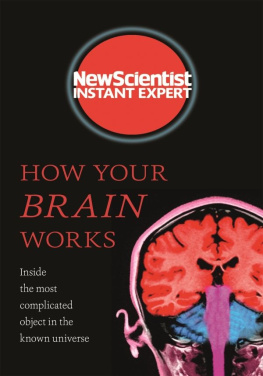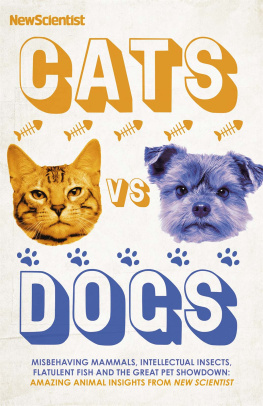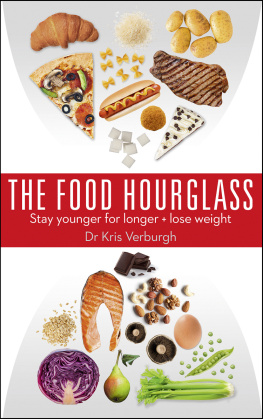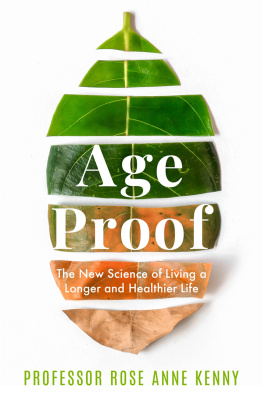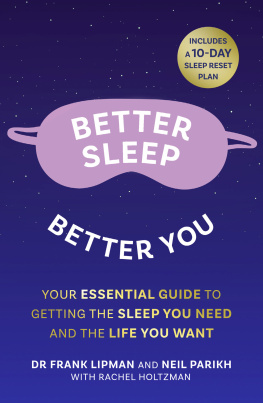Graham Lawton has a degree in biochemistry and an MSc in science communication, both from Imperial College, London. He is an award-winning staff writer at New Scientist . He lives in London.
Books by New Scientist include
How to be Human
The Origin of (almost) Everything
The Brain
How Long is Now?
The Universe Next Door
This Book Will Blow Your Mind
INTRODUCTION
I HAVE A confession to make: Im an overweight, lazy slob. I love beer and fast food and the odd crafty fag outside a pub. I cant remember the last time I drank fewer than fourteen units of alcohol in a week. I have a gym membership but I rarely use it. After work I slump in front of the TV, with snacks. Sometimes I drive to a shop I could easily walk to, usually to buy beer. I take medication to keep my blood pressure under control and my body mass index (BMI) puts me in the overweight category. Some lifestyle guru!
But heres another thing. Last year I cycled over 1,200 miles and ran the equivalent of fifteen marathons. I eat my five portions of fruit and vegetables a day, stay hydrated, watch my salt intake and dont eat meat. I fast regularly, go outdoor swimming, do Pilates and walk up eight flights of stairs to my desk instead of taking the lift. And despite my bad habits, my good ones seem to be winning. Im fifty, but my biological age was recently measured as forty-five. Im living proof that you dont have to be a health and fitness fanatic to be reasonably healthy and fit.
Whats my secret? Im a science journalist with a background in biochemistry, and I have spent much of my working life keeping abreast of the latest thinking in biomedical science and writing about it for a non-specialist audience. As a result Im able to evaluate health claims about nutrition, exercise, dietary supplements and more. I can spot a sensational headline a mile off, sniff out a fad and separate fact from fiction.
And I put what I know into practice. Im not claiming to have invented the ideal health and fitness regime, but I lead a healthy but not too restrictive life, based on evidence. And that is the purpose of this book: to empower you to do the same. And I really mean empower. Good health is something we should all strive for, because the opposite ill health is not pleasant, and will eventually kill you.
Knowing what to do isnt easy. Biomedical science advances all the time, which is why we now routinely live to grand old ages and enjoy better health than our grandparents. But with this increase in knowledge come greater complexity and the risk of information overload. Theres more advice out there than ever competing for your attention, but not always from the most authoritative sources.
My aim is to cut through the noise. I have rounded up the latest and most rigorous health research and converted it into useful, actionable advice on all the big health questions: well cover nutrition, diet, weight loss, hydration, exercise, preventative medicine, sleep and ageing. On the way Ill explain the basic science, debunk common myths, give you the tools you need to evaluate critically claims and counterclaims and help you to see beyond the headlines. Think of it as a manual for a healthy lifestyle.
If you have specific goals such as losing weight, improving your diet, getting fit, sleeping better or knowing which dietary supplements or superfoods are worth the money, youll find advice in here. But the book is more than the sum of its parts. A mantra in health science is that we must consider the totality of the evidence. That is what youll get a comprehensive and evidence-based guide to a heathier, fitter and, I hope, longer life.
Of course, lots of other people make similar claims. The world is not short of advice about what to eat and drink, how to stay fit, how to sleep better and live longer. But most of it is based on little more than myths, wishful thinking or unscientific mumbo-jumbo.
You can take this advice if you like. Or you can put your trust in the people whose job it is to work out what actually works: scientists. For every celebrity with a plan there are hundreds of nutritionists, exercise physiologists, sleep scientists and biomedical researchers doing the research and translating it into action. You wont read about it in glossy magazines or wellness blogs or see it on TV it is mostly found in the pages of serious and technical scientific journals but if youre really interested in living a longer, healthier and happier life, this is the stuff you need to know.
First, though, a disclaimer. Contrary to what many self-appointed gurus will tell you, the road to health, fitness and wellness is neither simple nor easy. The science is often uncertain, contradictory or difficult to translate into concrete advice. Changing your lifestyle for the better inevitably requires some effort, willpower and sacrifice. If you want quick and easy fixes, this book is not for you. (But before you put it down and go in search of a quick and easy fix, let me tell you for free that anyone promising one is taking you for a fool and trying to part you from your money.) Do not let the certainty of sacrifice put you off. A modicum of effort can pay big dividends. And even just knowing that advice is based on good science can be a strong motivator to act.
That is also what sets this book apart. Resolving to change your life for the better is easy; actually changing it is hard. Weve all made a resolution in January only to fall off the treadmill come February. But again, science can help. Understanding willpower, motivation and habit formation and how to harness them to your benefit is a big part of the battle.
And I promise it will pay off. You only get one life, and its shrinking every day. If you enjoy being alive and well and want more of it, this is the book for you.
Sorting fact from fiction
Before we tuck into our main course of health advice, it is a good idea to have a starter of statistics: the science of drawing valid conclusions from raw data. Understanding a bit of mathematics can be key to debunking a sensationalist headline.
Consider the claim that taking multivitamin supplements prevents cancer. To see whether this holds up, you need to run an experiment where one group of people takes multivitamins and another doesnt. After a certain amount of time, you see how many cases of cancer occurred in the two groups. This is your raw data. To turn it into a scientifically valid conclusion, you need to put it through the statistical wringer.
You might think that if there were more cases of cancer in the non-vitamin group youve proved your point. But you havent the result could be due to chance. To rule this out you need to know the statistical significance of the difference between the two groups. There is a standard equation for calculating this, which we dont need to concern ourselves with here. Suffice to say that the answer will be a number between 0 and 1.
For a result to be considered significant, that number needs to be at least 0.95. That means there is a 95 per cent probability that it did not happen by chance, and therefore reflects reality.
Some studies impose a higher threshold of 0.99 but 0.95 is the minimum standard of proof to look for. Bear in mind what that actually means: there is a one in twenty chance that it is a fluke. This is why multiple successful trials are needed to convince medical authorities that an effect is real.
Even if a finding is 99 per cent certain, that means there is a 1 per cent chance that it isnt. But that is not a licence to dismiss all scientific findings as 99 per cent certain means what it says: it is overwhelmingly likely to be true.
Statistical significance isnt everything. The second tip is to look at sample sizes the number of people in your study. The bigger a sample size the more likely the result is to be valid. Its a bit like tossing a coin. Five tosses might give you four heads and a tail, but youd be a fool to conclude that the probability of getting a head is therefore 0.8. Keep tossing the coin, say 100 times, and (assuming the coin is fair) that initial statistical noise will cancel out and a probability much closer to 0.5 will emerge.
Next page
